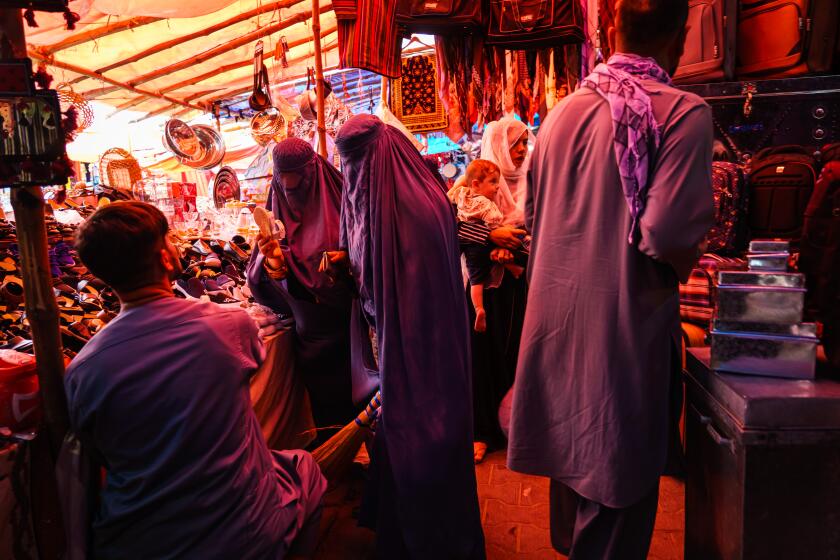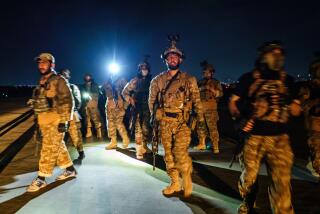Top Taliban leader back in Kabul as U.S. Embassy warns of danger outside airport
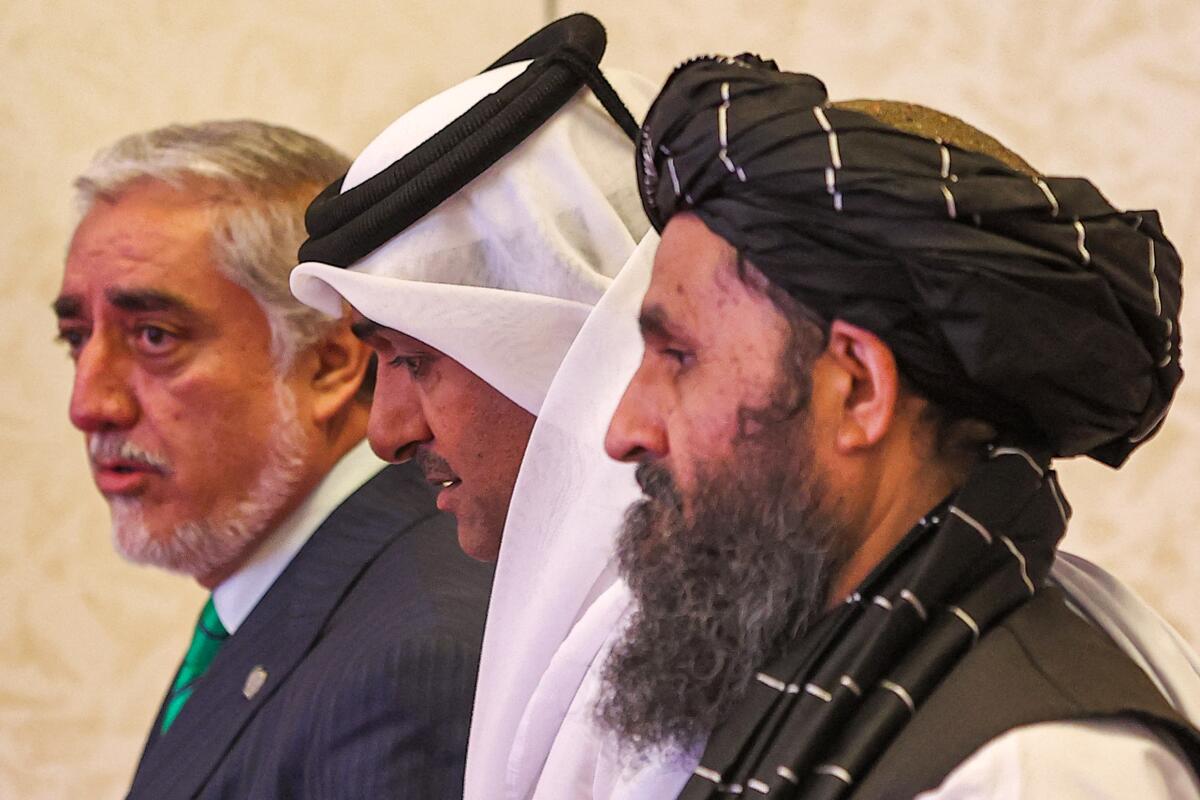
KABUL, Afghanistan â The Talibanâs top political leader has returned to Kabul, cementing the militant groupâs grip on the city, as the U.S. Embassy on Saturday warned of security threats outside the capitalâs crowd-ringed airport, the only U.S. redoubt remaining in all Afghanistan.
The arrival in the capital of Mullah Abdul Ghani Baradar, confirmed Saturday by pro-Taliban officials, signaled that nearly a week after overrunning Kabul and sending the countryâs president into exile, the Islamist insurgent group is moving to formalize the composition of a new government of what it calls the Islamic Emirate of Afghanistan.
The group, known for its brutal rule a generation ago, has urged Afghans not to flee, saying they have nothing to fear. But tens of thousands of people are seeking to get out of the country, converging on the capitalâs airport in numbers so large that the facility has become both bunker and bottleneck.
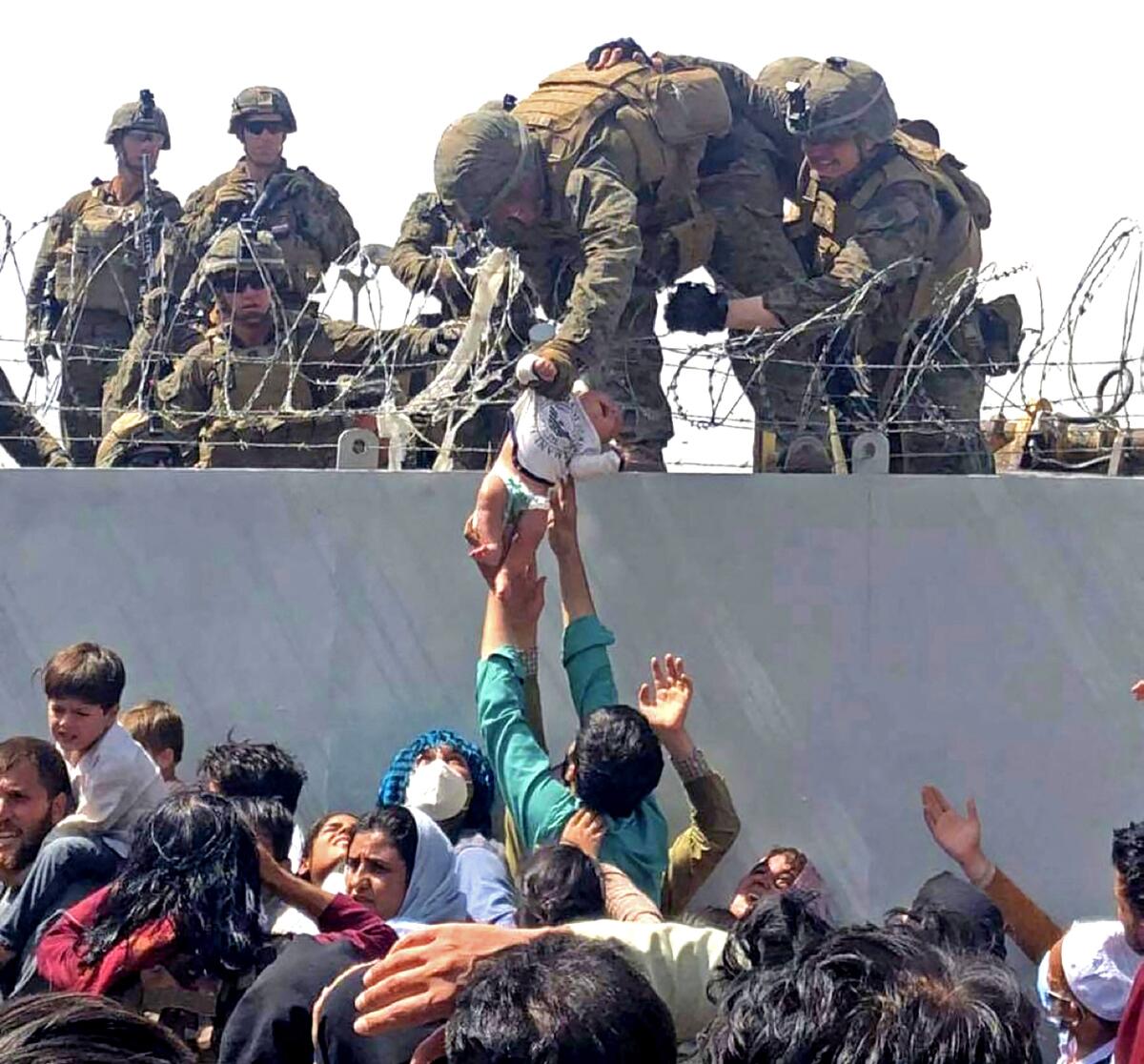
In the days since the Taliban took power, there have been scattered signs of resistance, with word of most such activity coming from social media and local news reports. Street protests in several cities, including Kabul, were swiftly broken up by Taliban fighters. And some former Afghan officials, from a base in the Panjshir Valley north of Kabul, have been trying to reconstitute an anti-Taliban fighting force, with little overt sign of success so far.
The countryâs new Taliban rulers face a host of pressing domestic problems, including a burgeoning humanitarian emergency and a looming cash-flow crisis. Moreover, basic services could begin grinding to a halt because essential workers are afraid to return to their government jobs.
A day after again mounting a defense of his decision to pull out American troops, President Biden huddled Saturday morning with members of his national security team, the White House said. The discussion centered on the situation in Afghanistan, including the threat posed by the Islamic State militant group, particularly to the throngs outside the airport.
Overnight, some entrances to the airfield were closed as U.S. and other Western diplomats inside struggled to deal with a huge backlog of Afghans who either aided in the American-led war effort or are now considered at risk because of work with groups advocating causes such as womenâs rights.
The alert distributed Saturday by the U.S. Embassy advised citizens âto avoid traveling to the airport and to avoid airport gates at this timeâ unless individually instructed to come. That guidance was tied to what were described as âpotential security threats outside the gates.â
The beach city of Oceanside blossomed over the decades as tens of thousands of Marines trained at Camp Pendleton and veterans returned to live nearby. A somber mood has taken the town as residents watch scenes of chaos in Kabul.
U.S. officials have cited Islamic State as among possible attackers, a threat that national security advisor Jake Sullivan has said the U.S. is âlaser-focusedâ on countering. In Afghanistan, the group is thought to have only a small footprint, having been driven from its strongholds in the countryâs east two years ago. But its extremist ideology and the pitiless methods it has used to subdue civilians under its control â combined with its rivalry with the Taliban â pose a distinct threat, officials have warned.
In addition to the danger of an opportunistic terrorist attack, those braving the increasingly dangerous crush outside the gates have encountered intimidation and beating by Taliban fighters manning the barricades. And even once people make it through the gate, processing delays sharply winnow the numbers of people cleared to board planes.
Germanyâs military said on Twitter that one of its planes left the Afghan capital Saturday with only 20 passengers.
The latest figures from the Pentagon reflected the scope of the airlift struggle. Military officials said Saturday morning that in the last 24 hours about 3,800 civilians had departed on about six C-17 military cargo planes and 32 charter flights, a slowdown from the previous day.
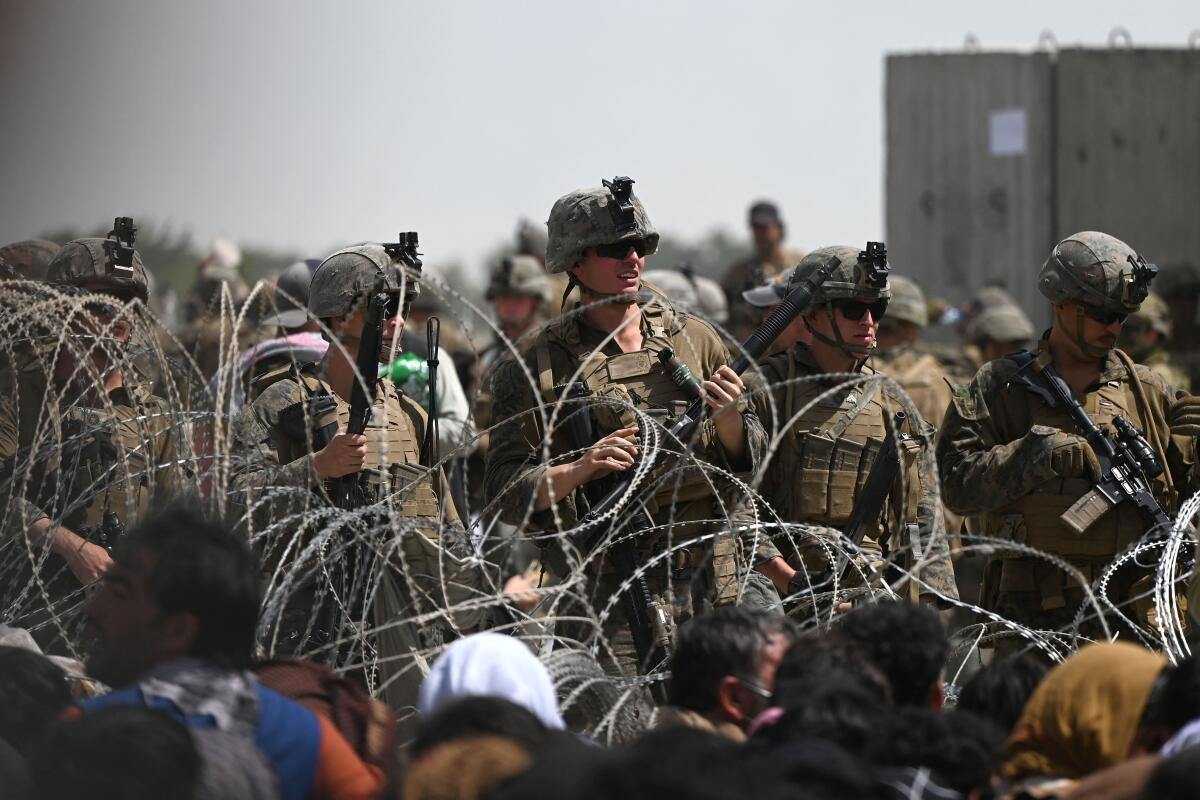
Part of the problem is finding places for all those people to go once safely out of Afghanistan. Twenty-five third countries have agreed to either temporarily take in at-risk Afghans or act as transit points for those being flown out, Secretary of State Antony J. Blinken said.
U.S. and its allies Friday stepped up evacuation efforts from the Afghan capital, Kabul, where thousands of desperate people ringed the airport
In Kabul, Taliban leaders have indicated no new government is likely to be formally announced until after the Aug. 31 deadline for the departure of American troops. Biden has left open the possibility of extending the presence of about 6,000 soldiers and U.S. Marines supporting the massive U.S.-overseen airlift, but he said it could not be open-ended.
In a sign of willingness to forge a working relationship with the Taliban rulers, former President Hamid Karzai, the countryâs first leader after the previous Taliban rule ended in 2001, and Abdullah Abdullah, a senior official in the deposed government, met Saturday with the groupâs acting governor of Kabul. Abdullah tweeted afterward that the top priority was to protect the âlife, property & dignityâ of the capitalâs residents.
Baradar, a co-founder of the Taliban movement who is now being eyed as a possible new president, was expected to hold talks soon with Karzai and other political figures who have been urging the Taliban to include some representation from outside the militant group in the new leadership structure.
The participation in political talks by Karzai and Abdullah, familiar figures on the international stage, could encourage foreign governments to consider at least ad hoc dealings with the Taliban. But hard-line militants such as Khalil Rahman Haqqani, a senior leader of the violent Taliban faction that bears his family name, could also seek a place in government, which could make it difficult or impossible for many Western governments to grant any form of legitimacy to the new leadership.
Taliban officials in recent days have launched an all-out public relations campaign, seeking to assure Afghans and a watching world that the group has moved on from its harshly repressive methods of a generation ago, which included public executions, draconian punishments for infractions like stealing, and the erasure of women from public life.
Seeking to portray itself as a responsible steward of the country of 38 million people, the Taliban has said it will not seek vengeance on those who have opposed it. But human rights groups have already documented instances of atrocities and reprisal attacks against former government officials and members of the vanquished Afghan security forces, as well as ethnic minorities.
Part of that Taliban effort to win respectability has been reassurances offered to journalists, particularly the foreign press. Taliban spokesman Zabihullah Mujahid tweeted Saturday that a committee has been set up to address âmedia problemsâ in Kabul, but on the streets of the capital, individual fighters have sometimes violently set upon Western journalists.
Times staff writers Yam reported from Kabul and King from Washington.
More to Read
Sign up for Essential California
The most important California stories and recommendations in your inbox every morning.
You may occasionally receive promotional content from the Los Angeles Times.

